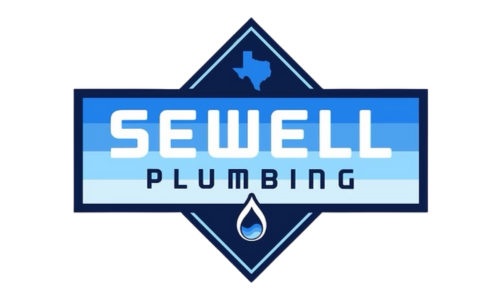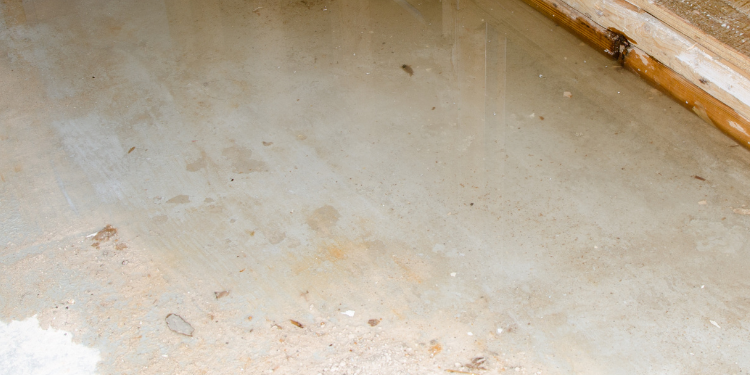Slab leaks are an all-too-common issue in areas like McKinney, TX, Allen, TX, and Frisco, TX. Homeowners often find themselves dealing with these leaks without fully understanding the cause or potential damage. Left untreated, a slab leak can lead to significant structural damage, costly repairs, and health risks due to mold and mildew growth. By understanding the causes of slab leaks and knowing how to prevent them, you can safeguard your home and your family’s well-being.
Key Takeaway: Slab leaks are caused by various factors including poor installation, shifting soil, and corrosion. Identifying the problem early can help avoid severe damage.
What Causes Slab Leaks?
Poor Installation Practices
One common cause of slab leaks is improper installation during the construction of your home. Pipes that are poorly fitted, kinked, or damaged can cause leaks over time as they experience pressure. Additionally, weak joints may develop leaks as water flow erodes the connections. In McKinney, TX, homes built in rapidly growing neighborhoods may face this issue, particularly when construction standards were rushed.
Corrosion in Pipes
Over time, the pipes under your home’s slab can corrode due to chemical reactions in the water, which weakens the metal and causes leaks. If you have older pipes, they are especially prone to corrosion. The combination of minerals in the water and the pipe material can accelerate corrosion, leading to slab leaks. Regular maintenance from a professional plumbing service, such as Sewell Plumbing, can help detect early signs of corrosion before the issue worsens.
Shifting Soil and Foundation Movements
In areas like Allen, TX, and Frisco, TX, the soil is particularly prone to expansion and contraction due to changes in moisture levels. This movement puts pressure on the foundation and the pipes running through it, leading to cracks and leaks. Homes built on expansive clay soils are especially at risk. Foundation movements can exert significant force on the pipes, causing them to shift and eventually leak.
How to Detect Slab Leaks
Unusual Water Bills
One of the earliest signs of a slab leak is a sudden spike in your water bill without any increase in usage. If your bill is unexpectedly high, it’s a good idea to investigate for hidden leaks under your home. Leaks that go unnoticed for too long can result in thousands of gallons of wasted water, leading to extensive water damage and higher utility costs.
Damp or Warm Floors
If the floors in your home feel unusually warm or damp, especially in rooms with no direct water source, it could indicate a slab leak. As water seeps from the pipes under your home, it heats the slab and the flooring above it. You may also notice damp spots on carpets, tiles, or hardwood, which can be early indicators of a more significant issue.
Sound of Running Water
Hearing water running when no taps or appliances are in use is another red flag for a potential slab leak. This constant flow of water, even when no fixtures are engaged, means that water is escaping from the pipes under the slab. It’s crucial to act quickly by contacting a professional plumber to assess the situation before further damage occurs.
How Slab Leaks Impact Your Home
Structural Damage
Slab leaks can cause severe structural damage to your home over time. As water accumulates under the foundation, it can lead to cracks in the slab, weakening the stability of the entire structure. If not addressed, the constant flow of water can erode the foundation, causing the home to settle unevenly or even collapse in extreme cases.
Mold and Mildew Growth
Water from a slab leak creates the perfect environment for mold and mildew to thrive. As moisture accumulates beneath your flooring, it seeps into walls and baseboards, fostering mold growth that can pose serious health risks. In humid climates like those in Frisco, TX, mold can spread rapidly, affecting the air quality inside your home and causing respiratory issues.
Damage to Flooring and Walls
If left unchecked, slab leaks can cause significant damage to your flooring and walls. The constant exposure to water can lead to warping, discoloration, and even complete deterioration of materials like hardwood, carpets, and drywall. This kind of damage requires costly repairs and often necessitates full replacement of affected areas.
Repairing Slab Leaks
Traditional Repair Methods
One method of repairing a slab leak is by excavating the area around the leak to access and repair the damaged pipe. While this method is effective, it is also invasive and can lead to damage to your flooring. After the pipe is repaired, the foundation and flooring must be restored, which can add to the overall cost and time of the repair process.
Trenchless Pipe Repair
A less invasive alternative to traditional repairs is trenchless pipe repair, which involves creating a new pipe within the existing one using an epoxy coating. This method allows plumbers to repair the damaged pipe without having to dig up the foundation, saving time and reducing the disruption to your home. Trenchless repairs are often recommended for smaller leaks that don’t require full pipe replacement.
Preventive Measures
Preventing slab leaks starts with regular maintenance and inspections. Hiring a professional plumber like Sewell Plumbing to perform annual checkups can help detect early signs of corrosion, shifting soil, or other potential causes of leaks. Installing water filtration systems and water pressure regulators can also extend the life of your plumbing system by reducing the wear and tear on pipes.
Answering Common Questions
What are the signs of a slab leak?
Signs of a slab leak include higher-than-usual water bills, warm or damp floors, the sound of running water when no fixtures are on, and the presence of mold or mildew.
How can I prevent slab leaks?
You can prevent slab leaks by ensuring your pipes are regularly inspected by a licensed plumber, addressing soil expansion issues around your foundation, and installing water pressure regulators.
How serious are slab leaks?
Slab leaks can cause significant structural damage to your home if not addressed promptly. They can lead to foundation cracks, mold growth, and damage to flooring and walls, which require expensive repairs.
What Role Does Water Pressure Play in Slab Leaks?
Excessive water pressure can accelerate the wear and tear on your pipes, making them more susceptible to leaks. Installing a water pressure regulator helps reduce this risk and ensures the longevity of your plumbing system.
Can Shifting Soil Cause Slab Leaks?
Yes, soil movement due to changes in moisture levels can cause the pipes under your foundation to shift or crack. This is a common issue in areas with expansive soils, like McKinney and Allen, TX. By addressing soil expansion around your home, you can help prevent these leaks.
Why You Should Contact a Professional Plumber
If you suspect a slab leak in your home, it’s essential to act quickly to minimize damage. Contact a reliable, local plumbing service like Sewell Plumbing to assess the situation and provide expert solutions tailored to your needs.







